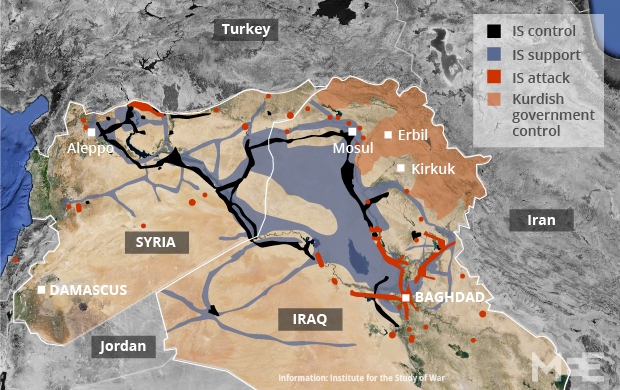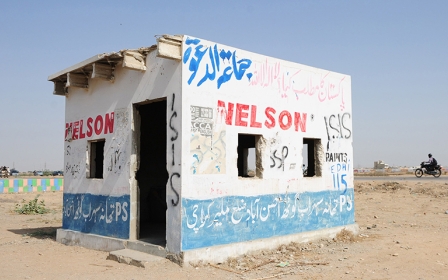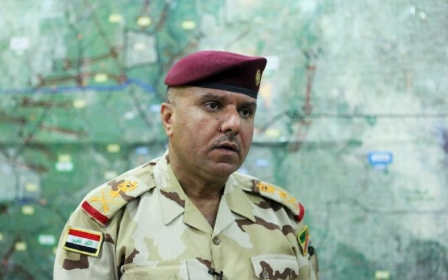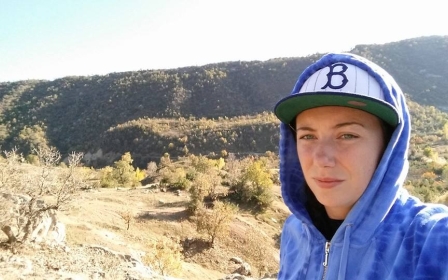Islamic State advance across Iraq and Syria 'being halted' says coalition
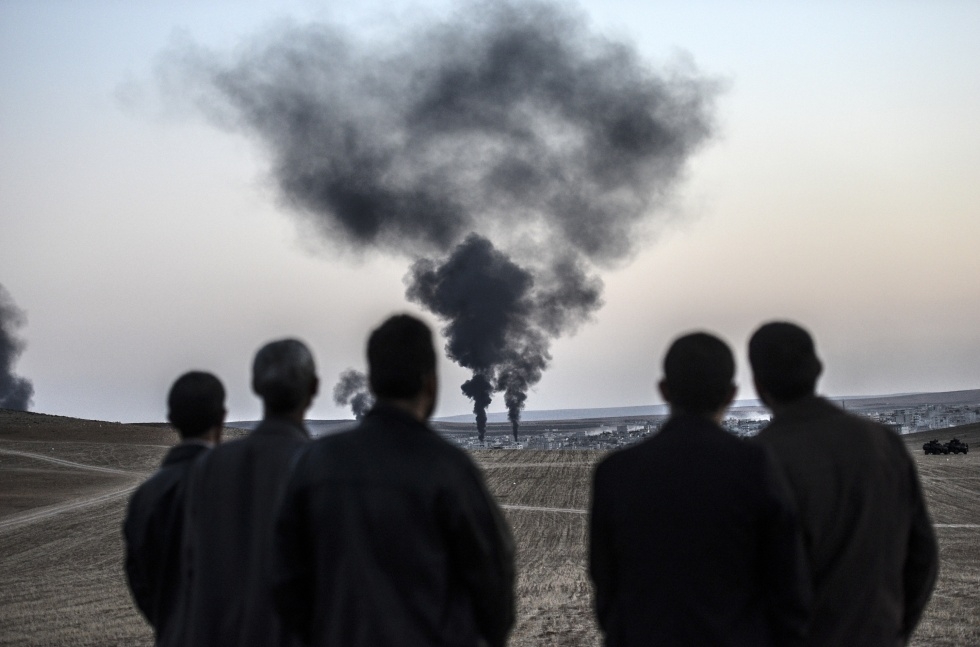
The Islamic State's advance across Iraq and Syria is finally being stopped, a US-led coalition said after a meeting in Brussels led by US Secretary of State John Kerry Wednesday.
"Participants noted that the global campaign against ISIL/Daesh is beginning to show results. The ISIL/Daesh advance across Syria and into Iraq is being halted," a coalition statement obtained by AFP said, referring to the group by its alternative names.
The statement said Iraqi and Kurdish forces, backed by coalition air strikes, "are now reclaiming territory in Iraq".
The coalition of around 60 mainly Western and Arab nations was formed after the first US air strikes in August against IS, which has proclaimed a caliphate in parts of Iraq and Syria.
They also agreed at the Brussels meeting to develop a "multifaceted" strategy to combat IS, including stopping the flow of foreign fighters, cutting finance and "delegitimisation" of its powerful, social media-driven brand.
The United States launched the first strikes against IS in Iraq in August. In late September the strikes were extended to IS targets in Syria, involving both the United States as well as a number of allies.
Saudi Arabia, the United Arab Emirates, Jordan and Bahrain are taking part in the air strikes in Syria and Australia, Belgium, Britain, Canada, Denmark, France and the Netherlands are participating in Iraq.
Separately, the Pentagon Tuesday confirmed for the first time that Iran recently carried out air strikes against IS in eastern Iraq.
The threat posed by IS has brought the two arch-foes together in the fight against the jihadists but Washington said the Iranian raids were not coordinated with US forces.
The United States has carried out the vast majority of the air strikes against the jihadists who proclaimed a caliphate in Syria and Iraq in June.
Dozens more countries are offering other support including information and intelligence sharing.
US secretary of State John Kerry, opening the talks at NATO headquarters, told foreign ministers taking part that the coalition of western and Arab states "will engage in this campaign for as long as it takes to prevail".
"Our commitment will most likely be measured in years," he said.
But he added that "our efforts are already having a significant impact".
Kerry made no comment on Iran, while Iraqi Prime Minister Haider al-Abadi, asked about the Iranian action, said he had "no knowledge of any Iranian air strikes."
Kerry on Tuesday did not rule out providing more aid to the Iraqi government. "I'm confident that over a period of time the United States will be providing additional assistance of one kind or another," he said.
Threat from foreign fighters
Officials said that during the conference the ministers will tackle how to disrupt IS finances and how to provide humanitarian aid to displaced people in Iraq and Syria.
The senior US official said the coalition partners are particularly concerned about the threat posed by thousands of foreign fighters who have joined IS and who could launch attacks in the West.
"It may be in fact one of the longest term problems that we'll ultimately face with respect to ISIS in this region," he said, using the group's alternate name.
Washington was working with European and Gulf Arab states about tightening borders and establishing no-travel lists, he added.
Coalition partners, he said, are due to meet in Marrakesh, Morocco on December 15 to further tackle the foreign fighters problem.
NATO has allowed its headquarters to be used for Tuesday's talks because foreign ministers from the transatlantic alliance met there on Tuesday, but NATO is not part of the US-led coalition against IS.
The ministers will discuss ways to send "counter-messages" to delegitimise IS, which has been savvy in using social media to recruit fighters and supporters over the Internet.
"As we are able to delegitimise (IS), we are able to turn populations against (IS), reduce their recruiting basis," he added.
The ministers will study ways to disrupt how IS raises finances through oil sales, extortion, plunder, ransom, human trafficking and the sale of Syrian antiquities, he said.
"We're working hard to map the oil system," he said, adding the coalition is tracking oil from the ground, to refineries, to black markets through tankers crossing borders, to the sources of cash and then banks.
Air strikes on refineries are undermining the IS ability to export the oil, and thereby raise funds, he said.
"We're just kicking off on many of these things. And what we're beginning to see already there is some effect that's beginning to become apparent."
The official said based on intelligence estimates there are around 30,000 IS fighters in both Syria and Iraq.
A new wave of Kurdish Peshmerga fighters from Iraqi Kurdistan (KRG) have entered the besieged town of Kobane, where Kurdish fighters continue to struggle with the Islamic State for control.
150 Peshmerga fighters entered through the Mursitpinar border crossing from Turkey, after being flown to the country from an airbase in the KRG capital of Irbil.
They are set reinforce the Syrian Kurds, primarily fighters from the People’s Protection Units (YPG) who have been under siege from IS for more than two months.
Turkey was initially hesitant about allowing Peshmerga fighters access to Syria from Turkish territory as the majority of fighters defending Kobane are affiliated to the Kurdistan Workers Party (PKK), a group designated a terrorist organisation by Turkey, US and EU.
International pressure to provide support to the Syrian Kurds eventually caused Turkey to relent and allow KRG Peshmerga fighters access in October, though the government still prevents Turkish Kurds from crossing the border.
New MEE newsletter: Jerusalem Dispatch
Sign up to get the latest insights and analysis on Israel-Palestine, alongside Turkey Unpacked and other MEE newsletters
Middle East Eye delivers independent and unrivalled coverage and analysis of the Middle East, North Africa and beyond. To learn more about republishing this content and the associated fees, please fill out this form. More about MEE can be found here.


